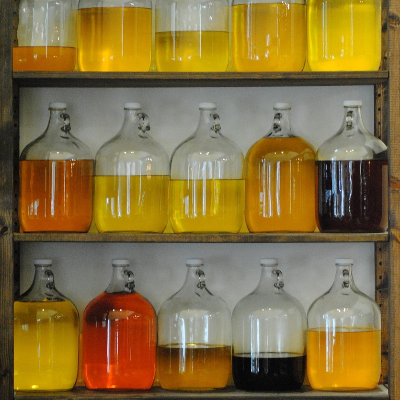Menu
-
-
F.A.Q
- How to identify genuine agarwood chip, natural or cultivated
- How to identify oil injection / absorption fake agarwood beads
- How to know if there are more than one oil in your oil
- How to make your wood bracelet or mala darker
- How to tell if an Agarwood bead sinks WITHOUT sinking it under water?
- How does back flow incense work and how do you burn it?
- Where to start if you don't know what agarwood is ?
- Why are you losing money if you buy seeds and plants?
- Which agarwood incense should I choose?
- Frequently Asked Questions
- Agarwood Related Articles
- Shipping
-
SHOP - Agarwood
-
SHOP - Other Fragrant Wood
-
SHOP - Incense Holder and Burner
-
- FREE Oud Oil guide
- Testimonials
- "Why did you buy this?"
- Contact us
- About Us
- +61430284329
- Login
-
English


The Ultimate Guide to Agarwood Tea: An Ancient Brew for Modern Wellness
April 13, 2015 8 min read
Originally Published: 13 April 2015
Last Updated: 15 November 2025
Editor's Note: This post was significantly updated in November 2025 to include the latest scientific studies and new sections on emerging research, such as the neuroprotective (brain health) and antidiabetic benefits of agarwood leaf.
For centuries, agarwood has been revered for its precious resinous heartwood, the source of valuable incense and perfume. However, the benefits of this remarkable tree do not end with its wood. A healthy drink is emerging, one that is capturing the attention of health-conscious individuals and tea lovers in Western countries and beyond: agarwood tea.
This article explores everything you need to know about this refreshing beverage, from its source to its significant health benefits.
What is Agarwood Tea? A Unique Herbal Tea from Aquilaria Leaves
When people think of agarwood, they typically picture the dark, resinous wood. However, agarwood tea (also known as gaharu tea) is not made from the wood at all. Instead, it is a herbal tea brewed from the agarwood leaves of the Aquilaria tree.
Unlike other teas such as green tea or black tea, which come from the Camellia sinensis plant, agarwood leaf tea is in its own category. The tea production process often involves harvesting the young leaves or mature leaves, which are then washed, sometimes finely chopped, and dried (in some processes, until the leaves turn brown).
This leaf tea has been consumed for centuries in traditional medicine, particularly in China and Southeast Asia, but is now gaining global popularity as a popular drink for human health.
The Science: Chemical Constituents and Chemical Composition of Aquilaria Spp
The secret to the medicinal benefits of agarwood tea lies in its complex chemical composition. The leaves of Aquilaria spp (the genus of trees) are rich in potent bioactive compounds.
Key chemical constituents include:
- Phenolic Compounds and Polyphenols: These are powerful anti oxidants that help protect the body from oxidative stress.
- Flavonoids: These compounds are well known for supporting a healthy immune response.
- Amino Acids: These are the building blocks of protein and play numerous roles in the body.
- Triterpenoids: These compounds are studied for a wide range of health-promoting properties.
Scientific studies, often using methanolic extracts of the leaves, have identified these components as the source of the tea's benefits.
Exploring the Health Benefits of Agarwood Tea
The traditional uses and modern science of Aquilaria leaves point to a wide range of health benefits. A comprehensive 2025 review confirms its role in fighting inflammation and bacteria, and also highlights its benefits for blood sugar (antidiabetic) and digestive health (gastrointestinal regulation) (Neo et al., 2025).
Unlocking Benefits: The Anti-Inflammatory Properties and Anti- Inflammatory Action of Aquilaria Sinensis
One of the most celebrated benefits of agarwood tea is its powerful anti-inflammatory effect. Chronic inflammation is a root cause of many modern health issues.
The chemical constituents found in the leaves of Aquilaria sinensis (a common species) have been shown to exhibit significant anti-inflammatory activities. This makes agarwood leaf extract a subject of interest for managing conditions linked to inflammation. Consuming this herbal tea may help the body maintain a balanced and healthy inflammatory response, which can also benefit skin health.
Antibacterial Activity of Aquilaria Leaves Extract
Introduction: Aquilaria leaves extract has been found to fight against harmful bacteria. Several studies have shown that these extracts can stop bacteria from growing and forming protective layers, making them effective in treating infections (Neo et al., 2025).
Evidence:
- Aquilaria crassna Leaves Extract:
- Key Points: Extracts from Aquilaria crassna leaves can kill Staphylococcus epidermidis, a type of bacteria, by damaging their cell walls and preventing them from forming biofilms (protective layers). The extract is safe for mice even at high doses (Kamonwannasit et al., 2013).
- Aquilaria malaccensis Leaves Extract:
- Key Points: Extracts from Aquilaria malaccensis leaves are effective against several drug-resistant bacteria, including Acinetobacter baumannii, Klebsiella pneumoniae, and Escherichia coli. These extracts can create clear zones around bacteria, showing their ability to stop bacterial growth (Jihadi et al., 2020).
- Aquilaria agallocha Leaves and Bark Extracts:
- Key Points: Extracts from Aquilaria agallocha leaves and bark can kill bacteria like Bacillus subtilis, Shigella flexneri, and Pseudomonas aeruginosa. These extracts contain natural chemicals that contribute to their antibacterial properties (Dash et al., 2008).
- Aquilaria malaccensis Against Skin Infections:
- Key Points: Aquilaria malaccensis leaf extracts can also fight bacteria that cause skin infections, such as Staphylococcus aureus. The best results were seen at higher concentrations of the extract, which contains substances like flavonoids and tannins (Batubara et al., 2021).
- Boosting the Immune System:
- Key Points: These extracts can also help boost the immune system by increasing the activity of immune cells that fight infections. This makes them even more effective against bacteria (Yana et al., 2022).
Aquilaria leaves extracts are powerful in fighting bacteria and can boost the immune system, making them promising for treating infections.
Managing Blood Pressure and Promoting Heart Health
For those concerned with cardiovascular health, agarwood tea is a popular choice. Traditional uses have long included it as a tonic for circulation.
Modern research is investigating its role in managing high blood pressure (Alosaimi et al., 2019). Some compounds in the tea are believed to help relax blood vessels, which in turn helps to lower blood pressure. Furthermore, it may also assist in managing cholesterol level (Li et al., 2023).
Emerging Research: Brain Health and Neuroprotection
In addition to its traditional uses, emerging research is uncovering exciting new benefits. A 2025 scientific review found that compounds in agarwood show significant potential as a neuroprotective agent. This research suggests these compounds may help protect brain health by reducing oxidative stress and could play a future role in managing conditions related to the nervous system (Gul et al., 2025).
Agarwood Tea vs. Green Tea: A Battle of the Brews?
How does agarwood tea stack up against the king of healthy teas, green tea?
- Source: Green tea, oolong tea, and black tea all come from the Camellia sinensis plant. Agarwood tea comes from Aquilaria trees.
- Caffeine: Agarwood leaf tea is naturally caffeine-free, making it an excellent choice for any time of day, unlike green tea.
- Anti Oxidants: Both are excellent sources of anti oxidants, but they contain different types of polyphenols, offering unique benefits.
- Flavor: Green tea can be grassy and sometimes astringent. Agarwood tea has a unique taste that is often described as smooth, slightly sweet, and woody, with a pleasant aroma.
While green tea is a fantastic healthy drink, agarwood tea provides a unique set of health benefits and is a great alternative for those avoiding caffeine or looking to try new herbal teas like chamomile.
Beyond the Leaf: The Role of Agarwood Essential Oil
It is important to distinguish the tea from the essential oil. The primary source of agarwood essential oil (or oud oil) is the precious, resin-infected wood of wild agarwood trees. This essential oil is incredibly expensive and prized for its complex aroma in perfumery and incense.
The leaves do not contain this oil. The benefits of the tea come from water-soluble compounds in the aquilaria leaves, not the oil from the wood. (Note: Essential oils should not be consumed).
How to Prepare and Enjoy Your Agarwood Leaf Tea

Getting the most from your agarwood tea leaves is easy. The preparation is simple:
- Portion: Use a standard dose of tea, typically one teaspoon of dried leaves or one tea bag per cup (we recommend 1g of Aquilaria leaf)
- Water: Heat fresh, clean water (like flowing water) to just before boiling (around 80-90°C). Using boiling water can destroy some of the delicate compounds and affect the taste.
- Steep: Pour the hot water over the leaves and let it steep for 1-3 minutes. The steep time can be adjusted based on your preference for strength.
- Enjoy: The tea can be consumed hot or cold as a refreshing beverage. It is a natural food product that can be enjoyed daily.

Is It Safe?
Agarwood tea is considered very safe for regular consumption. It is a natural product without the side effects associated with many supplements. As it is not a medical treatment, it is intended to support, not replace, a healthy lifestyle. There is no known significant harm associated with drinking tea in this form.
In conclusion, agarwood tea is more than just a popular drink. It is a form of herbal tea that connects ancient tradition with modern health needs, offering benefits for blood pressure, inflammation, digestive health, and even emerging areas like brain health. Whether you are looking to promote weight loss, boost your immune response, or simply enjoy a delicious, healthy beverage, agarwood tea is an excellent choice. (This tea is also popular in India and other parts of Asia).
Frequently Asked questions About Agarwood Tea
1. What does agarwood tea taste like?
Agarwood tea has a unique and pleasant taste that is very different from traditional teas. Most people describe its flavor as smooth, slightly sweet, and woody, with a very clean finish. It has a mild, pleasant aroma and lacks the bitterness or astringency sometimes found in green tea.
2. Does agarwood tea contain caffeine?
No. Agarwood leaf tea is a naturally caffeine-free herbal tea. This makes it a perfect healthy drink for any time of the day or evening, especially for those who are sensitive to caffeine or want to avoid it.
3. What are the main health benefits of drinking tea from agarwood leaves?
While it is not a cure-all, agarwood tea is associated with several key health benefits. Its primary benefits are linked to its high level of anti oxidants and anti inflammatory properties. It is also traditionally used to help manage blood pressure, support the immune response, aid in digestion, and regulate blood sugar (Neo et al., 2025).
4. Can agarwood tea help promote weight loss?
Agarwood tea can be a helpful part of a weight management plan. As a naturally calorie-free and caffeine-free healthy drink, it is an excellent replacement for sugary beverages. Some of its compounds, like mangiferin (also found in mangoes), are being studied for their potential to support a healthy metabolism, which may help promote weight loss when combined with a healthy diet and exercise.
5. Is this tea made from the expensive agarwood wood?
No, and this is an important distinction. The precious, resinous wood of the Aquilaria tree is the primary source for incense and expensive agarwood essential oil. The tea, however, is made from the agarwood leaves (aquilaria leaves) of the same tree. These leaves contain their own unique set of beneficial compounds that are different from those found in the wood.
6. Are there any side effects or potential harm from drinking it?
Agarwood tea is a natural food product and has been consumed for centuries with no known significant harm or side effects. It is considered very safe for most people as a regular herbal tea. However, as with any supplement, if you have a pre-existing medical condition, it is always wise to speak with your doctor.
References
Alosaimi, M. S., Ho, Y. H., Ebaid, H. M., Al-Slam, H., Hine, P. C., Ali, S., ... & J. H. (2019). Extract of Aquilaria crassna leaves and mangiferin are vasodilators while showing no cytotoxicity. BMC Complementary and Alternative Medicine, 19(1), 199. https://pmc.ncbi.nlm.nih.gov/articles/PMC6701956/
Batubara, R., Wirjosentono, B., Siregar, A. H., Harahap, U., & Tamrin. (2021). Bioactive compounds of ethanol extract from agarwood leaves (Aquilaria malaccensis) and antimicrobial activity against bacteria and fungi growing on the skin. Biodiversitas Journal of Biological Diversity, 22(11), 4822-4828. https://smujo.id/biodiv/article/download/7769/4828
Dash, M., Patra, J. K., & Panda, P. P. (2008). Phytochemical and antimicrobial screening of extracts of Aquilaria agallocha Roxb. African Journal of Biotechnology, 7(21), 3857-3860. https://www.researchgate.net/publication/255615782_Phytochemical_and_antimicrobial_screening_of_extracts_of_Aquilaria_agallocha_Roxb
Gul, M., Afzal, S., Arshad, M., & Rahim, E. A. (2025). Agarwood as a neuroprotective agent: a comprehensive review of existing evidence and potential avenues for future research. Molecular Biology Reports, 52(3), 2947–2962. https://link.springer.com/article/10.1007/s11033-024-09252-4
Jihadi, N. F., Gani, S. S. A., & Rahmat, N. R. (2020). Antibacterial activity of ethanolic extract of agarwood (Aquilaria malaccensis) leaves against multi-drug resistant. Food Research, 4(6), 205-211. https://doi.org/10.26656/fr.2017.4(6).205
Kamonwannasit, S., Kumpiriyapong, S., Wongs-prasert, D., Nopsiri, W., Phum-me, K., & K-adis-ar, W. (2013). Antibacterial activity of Aquilaria crassna leaf extract against Staphylococcus epidermidis by disruption of cell wall. Annals of Clinical Microbiology and Antimicrobials, 12(20). https://ann-clinmicrob.biomedcentral.com/counter/pdf/10.1186/1476-0711-12-20.pdf
Li, B., Liu, Y., Mo, H., Wang, J., Yang, Z., Chen, B., ... & Wu, D. (2023). Feeding Aquilaria sinensis Leaves Modulates Lipid Metabolism and Improves the Meat Quality of Goats. Foods, 12(3), 564. https://pmc.ncbi.nlm.nih.gov/articles/PMC9914005/
Neo, Z. Z., Ainuddin, A. R., Talip, B. A., & Ibrahim, S. A. (2025). Pharmacological Properties and Health Benefits of Aquilaria Leaf Extract: A Review of its Antioxidant, Antidiabetic, Antimicrobial, Anti-Inflammatory, and Gastrointestinal Regulation Effect. Borneo Journal of Resource Science and Technology, 15(1), 81-92. https://publisher.unimas.my/ojs/index.php/BJRST/article/view/6088
Yana, Y., Fathnur, F., Ray, H. R. D., As’ad, A. F., & Musdja, M. S. (2022). Immunomodulatory Activity of Agarwood (Aquilaria malaccensis Lamk) Leaf Extract in Mus musculus Balb/c. Indonesian Biomedical Journal, 14(3), 329-335. https://inabj.org/index.php/ibj/article/download/1810/579
Leave a comment
Comments will be approved before showing up.
Also in News

What is Tasbih? The Deep Meaning of Subhan Allah and the Role of Prayer Beads
November 09, 2025 4 min read

